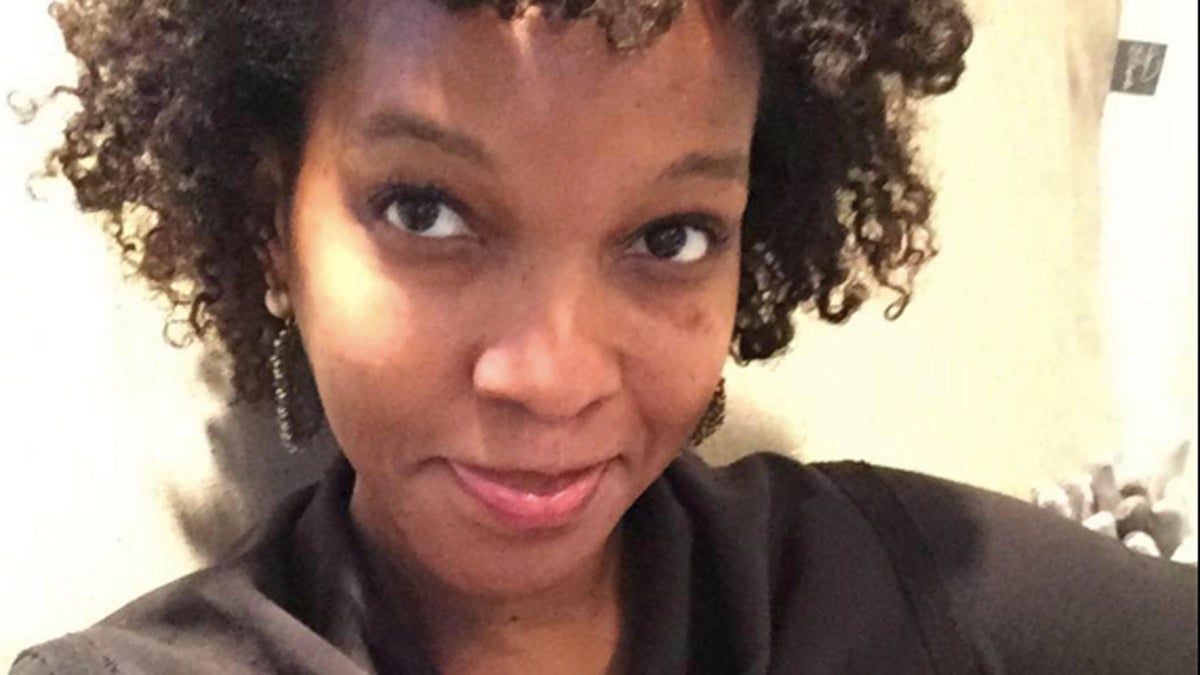Black Princeton professor’s arrest renews debate over racial bias in law enforcement

Imani Perry's Facebook profile photo.
Princeton police today released their dashcam video from the Saturday morning traffic stop of a Princeton University professor. The video shows the driver, Imani Perry, getting out of the car and walking to the rear of her car at the request of two police officers. The officers and Perry are not visible in the video’s frame most of the time but in the audio you can hear the police officer explain why she was pulled over and that she was driving with a suspended driver’s license and that there is a warrant for her arrest.
Perry, a professor of African-American studies at Princeton University, said she was pulled over for speeding and arrested because of an outstanding warrant for an unpaid parking ticket. She does not dispute that she was speeding or that she owes fines. However, she did imply on her popular Twitter feed and in a Facebook essay that her treatment during the arrest could be the result of either generally heavy-handed local police policies or excessive enforcement based on her race.
The incident first came to light when Perry used her Twitter account to complain publicly.
Yesterday, on my way to work, I was arrested in Princeton Township for a single parking ticket three years ago…
— Imani Perry (@imaniperry) February 7, 2016
She described the events in a series of tweets about her being arrested, handcuffed and denied a phone call at the scene by two police officers. She also posted that she was patted down by the male officer even though a female officer also was present.
Princeton Police Chief Nick Sutter said in a phone interview that the officers who arrested Perry acted according to protocol. Sutter said that Perry was stopped for speeding at 67 mph in a 45 mph zone on Mercer Road in the southern end of Princeton. It was then that the officers learned that her driver’s license was suspended and that there was a warrant out for her arrest for unpaid parking tickets, Sutter said. She was taken into custody and released after posting the required bail, $130. Sutter also said that the police pat down had been non-invasive.
After Chief Sutter’s statements were widely reported, Perry posted a Facebook status stating that Sutter was lying about some aspects of her arrest. She said that she did not consider the pat down non-invasive.
Perry did not respond to requests for comments. However, in her public essay posted to her Facebook page, she stated that although she cannot claim that “this specific mistreatment was a result of race,” her experience was “far more likely” because she’s black.
Perry contextualized her case in the grander scheme of violence against black men and women, noting that although her experience was “humiliating and frightening,” she was not murdered, roughed up or taken away from her family like other members of the black community.
Perry also addressed some of the criticism she has received since going public with her story.
Some critics have said that I should have expected what I received. But if it is the standard protocol in an affluent suburb to disallow a member of the community to make a call before an arrest (simply to inform someone of her arrest) and if it is the protocol to have male officers to pat down the bodies of women, and if it is the norm to handcuff someone to a table for failing to pay a parking ticket, we have a serious problem with policing in the society.
If it is not the case that this is the general practice, then I hope everyone reading will consider the possibility that the way I was treated had something to do with my race, and that we have a serious problem with policing in this society particularly with respect to Black people.
“I’m very cognizant of the current perception by certain communities of law enforcement,” Chief Sutter said. “However, my cursory review of the case showed that the officer acted according to policy and that the perception of that policy is really the issue.”
The Mercer County Prosecutor’s Office is investigating the case to determine if Perry was mistreated or discriminated against in any way, Chief Sutter said.
There were over 350 Princeton warrant arrests in 2015, the vast majority of which were for traffic tickets, Chief Sutter said. He said this type of arrest is common, and that a pat down by a male police officer is within policy guidelines. Statistics on arrests can be found on the police website.
“We welcome an investigation not only of the treatment of Professor Perry, but of the underlying policies, practices, and protocols that were applied,” wrote Princeton University President Christopher Eisgruber in a letter in support of Perry to the university’s student newspaper, The Daily Princetonian. “We share with the town a commitment to fair treatment of all members of our community and of making the entire Princeton community as welcoming, respectful, and inclusive as possible.”
Perry is not the only eminent professor to say she was treated unfairly by police. Harvard University Professor Henry Louis Gates Jr. was arrested in a 2009 incident that began when Gates, who was locked out of his own house, was trying to get inside when a neighbor called police thinking he was a burglar.
Perry’s arrest and allegations of mistreatment come three months after members of the student group Black Justice League staged a sit-in at Princeton University President Eisgruber’s office. The group demanded that the university enact more racially sensitive policies, including removal of U.S. President Woodrow Wilson’s name from several buildings. Wilson is a past president of Princeton University whose legacy includes expanding racial segregation during his presidency of the U.S.
Perry’s claims also come at a time when police departments nationwide have come under increased scrutiny after widespread reporting on shootings of unarmed black citizens.
WHYY is your source for fact-based, in-depth journalism and information. As a nonprofit organization, we rely on financial support from readers like you. Please give today.




